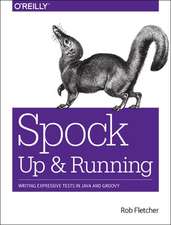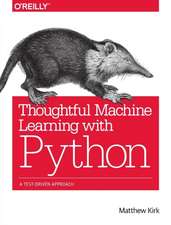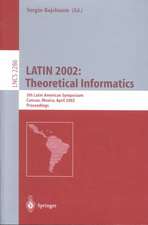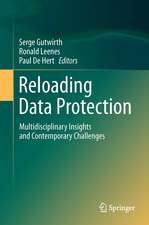Profiling the European Citizen: Cross-Disciplinary Perspectives
Editat de Mireille Hildebrandt, Serge Gutwirthen Limba Engleză Hardback – 7 mai 2008
| Toate formatele și edițiile | Preț | Express |
|---|---|---|
| Paperback (1) | 423.03 lei 6-8 săpt. | |
| SPRINGER NETHERLANDS – 19 oct 2010 | 423.03 lei 6-8 săpt. | |
| Hardback (1) | 486.40 lei 6-8 săpt. | |
| SPRINGER NETHERLANDS – 7 mai 2008 | 486.40 lei 6-8 săpt. |
Preț: 486.40 lei
Preț vechi: 608.00 lei
-20% Nou
Puncte Express: 730
Preț estimativ în valută:
93.07€ • 97.44$ • 77.01£
93.07€ • 97.44$ • 77.01£
Carte tipărită la comandă
Livrare economică 05-19 aprilie
Preluare comenzi: 021 569.72.76
Specificații
ISBN-13: 9781402069130
ISBN-10: 1402069138
Pagini: 404
Ilustrații: XXX, 374 p.
Dimensiuni: 155 x 235 x 30 mm
Greutate: 0.74 kg
Ediția:2008
Editura: SPRINGER NETHERLANDS
Colecția Springer
Locul publicării:Dordrecht, Netherlands
ISBN-10: 1402069138
Pagini: 404
Ilustrații: XXX, 374 p.
Dimensiuni: 155 x 235 x 30 mm
Greutate: 0.74 kg
Ediția:2008
Editura: SPRINGER NETHERLANDS
Colecția Springer
Locul publicării:Dordrecht, Netherlands
Public țintă
ResearchCuprins
What is Profiling?.- General Introduction and Overview.- Defining Profiling: A New Type of Knowledge?.- General Description of the Process of Behavioural Profiling.- The Role of Algorithms in Profiling.- Behavioural Biometric Profiling and Ambient Intelligence.- Personalisation and its Influence on Identities, Behaviour and Social Values.- Applications of Profiling.- Biometric Profiling: Opportunities and Risks.- Profiling and Location-Based Services (LBS).- Collecting Data for the Profiling of Web Users.- User Profiling for Attention Support at School and Work.- Profiling of Customers and Consumers - Customer Loyalty Programmes and Scoring Practices.- Profiling in Employment Situations (Fraud).- Profiling, Democracy and Rule of Law.- Cogitas, Ergo Sum. The Role of Data Protection Law and Non-discrimination Law in Group Profiling in the Private Sector.- Regulating Profiling in a Democratic Constitutional State.- Profiling and the Identity of the European Citizen.- Knowing Me, Knowing You – Profiling, Privacy and the Public Interest.- Concise Conclusions: Citizens out of Control.
Textul de pe ultima copertă
In the eyes of many, one of the most challenging problems of the information society is that we are faced with an ever expanding mass of information. Selection of the relevant bits of information seems to become more important than the retrieval of data as such: the information is all out there, but what it means and how we should act on it may be one of the big questions of the 21st century. If an information society is a society with an exponential proliferation of data, a knowledge society must be the one that has learned how to cope with this.
Profiling technologies seem to be one of the most promising technological means to create order in the chaos of proliferating data. In this volume a multifocal view will be developed to focus upon what profiling is, where it is applied and what may be the impact on democracy and rule of law. Based on the work done within the European Network of Excellence (NoE) on the Future of Identity in Information Society (FIDIS), a setof authors from different disciplinary backgrounds and jurisdictions share their understanding of profiling as a technology that may be preconditional for the future of our information society.
Profiling technologies seem to be one of the most promising technological means to create order in the chaos of proliferating data. In this volume a multifocal view will be developed to focus upon what profiling is, where it is applied and what may be the impact on democracy and rule of law. Based on the work done within the European Network of Excellence (NoE) on the Future of Identity in Information Society (FIDIS), a setof authors from different disciplinary backgrounds and jurisdictions share their understanding of profiling as a technology that may be preconditional for the future of our information society.
Caracteristici
This volume aims to put profiling on the agenda of computer scientists, social scientists, lawyers, philosophers and others, by presenting a multifocal perspective that provides serious insight into profiling while also grounding it in its societal context It consists of a set of main contributions followed by cross-disciplinary replies, thus generating a productive discussion across the borders of different research communities























